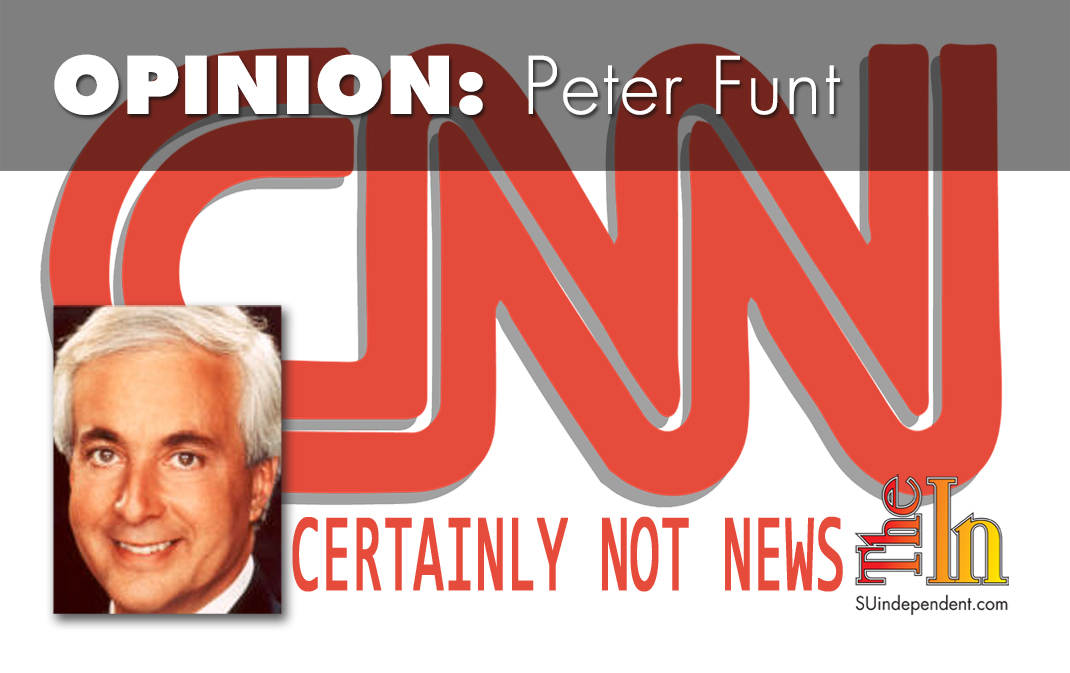
Kamala Harris tests CNN’s campaign
CNN’s “Town Hall” Monday night featuring quickly rising Senator Kamala Harris was moderately helpful in assessing the California freshman’s presidential candidacy but far more useful in evaluating what television must do in the critically important 2020 race.
Host Jake Tapper promised that this would be the first of many such made-for-CNN events. Indeed, with a crowded field of Democratic contenders, many of whom are new to the national scene, an hour of prime time can go a long way toward educating voters.
Or not. CNN chose the campus of Drake University in Des Moines as the setting for its program because, as Tapper explained, “The all-important Iowa caucuses are just over one year away.” That’s a distinction that might work for Iowans but at this stage is lost on voters in 49 other states.
The audience was described by Tapper as “people who tell us they plan to caucus with the Democrats next year and members of the Drake University community.” Translation: A friendly crowd capable of fairly soft, straight-from-the-playbook questions, such as: “What would you plan to do to make America safer (for minorities)?” and “What is the first thing you would do as president of the United States?”
Even the toughest question, about Harris’s record as a prosecutor, was presented without teeth. Moreover, although Tapper made a token effort to follow up, he did not challenge Harris as many critics have in recent weeks.
Writing in The New York Times, law professor Lara Bazelon noted that, “Time after time, when progressives urged her to embrace criminal justice reforms as a district attorney and then the state’s attorney general, Ms. Harris opposed them or stayed silent.”
For her part, Harris was engaging and even charismatic. But her answers often went too long, and Tapper never once interrupted. Without any meaningful pushback, Harris was left to glide along with boilerplate answers.
Perhaps CNN would argue that such introductory gatherings are intended to give candidates a forum to lay out their positions without the rigors of an actual debate, or even the stress of a Sunday talk show. Maybe the format is designed to make it more likely that candidates will accept the invitation, knowing that they will receive only predictable questions.
Previous non-election Town Halls, such as one featuring Rep. Nancy Pelosi, had more meat on the bone and provided a much more valuable service to viewers.
Frankly, the entire Town Hall format is too gimmicky. Since audience questions are carefully screened by producers ahead of time and their order predetermined, what’s the point? The forum would be far more useful if multiple hosts questioned the guest with perhaps a fairly brief audience segment at the end.
It’s a long, some would say excruciating, trek to Election Day 2020. Many people believe it’s far too early to pay close attention to an overcrowded field slugging it out in an overly long campaign.
Then again, the stakes couldn’t be higher. CNN is in a unique position, without the clear conservative bias of Fox, or the overt liberal leaning of MSNBC, to inform viewers about the candidates and issues.
Viewers seem to agree, with nearly 2 million watching the CNN program, the most ever for a single-candidate event of this kind.
Kamala Harris will undoubtedly grow as the campaign moves forward. CNN must as well.
The viewpoints expressed above are those of the author and do not necessarily reflect those of The Independent.
How to submit an article, guest opinion piece, or letter to the editor to The Independent
Do you have something to say? Want your voice to be heard by thousands of readers? Send The Independent your letter to the editor or guest opinion piece. All submissions will be considered for publication by our editorial staff. If your letter or editorial is accepted, it will run on suindependent.com, and we’ll promote it through all of our social media channels. We may even decide to include it in our monthly print edition. Just follow our simple submission guidelines and make your voice heard:
—Submissions should be between 300 and 1,500 words.
—Submissions must be sent to editor@infowest.com as a .doc, .docx, .txt, or .rtf file.
—The subject line of the email containing your submission should read “Letter to the editor.”
—Attach your name to both the email and the document file (we don’t run anonymous letters).
—If you have a photo or image you’d like us to use and it’s in .jpg format, at least 1200 X 754 pixels large, and your intellectual property (you own the copyright), feel free to attach it as well, though we reserve the right to choose a different image.
—If you are on Twitter and would like a shout-out when your piece or letter is published, include that in your correspondence and we’ll give you a mention at the time of publication.



